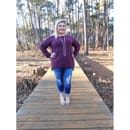Photos by: Megan CarswellYes, #metoo.
This is my story.
The summer before my freshman year of high school I was sexually assaulted by one of my friends.
I am an upper middle class, white girl from the suburbs of Houston. According to stereotypes, life was supposed to be easy for me. I didn’t hang out with kids who drank or did drugs or did bad things. He was my one older friend who was friends with many of the people in my friend group. He was a religious boy from a good home. According to the stereotypes, this shouldn’t have happened to me, but… Yes, me too.
For the first few months after the assault I didn’t even know what had happened to me. All I knew was that I wasn’t comfortable with what happened, I chalked it up to me never even talking to a boy before, and that it was normal. Soon I had discovered a documentary on sexual assault in America. I remember a heaviness in the room, with a venom in my stomach burning from the inside out. The utter realization of what had actually happened to me sunk in, and at first all I could think of was how now I was a statistic. I was now a 1 in 4. I felt dirty and disgusted, and that night I took an hour-long shower and scrubbed at my skin until it was bright red.
Over the next few years, I felt a deep burning hatred toward myself. I blamed myself for what happened to me and was completely self-destructive. I developed an eating disorder, began self-harming, and was intensely suicidal. I lashed out at my family members for not understanding my pain, when I was actually the one shutting them out. I eventually got clean of self-harm and ended my disordered eating, though I had only myself and a couple close friends to rely on because I chose not to get professional help for my depression and anxiety.
Senior year was the year I said the words “I was sexually assaulted” out loud. I had a panic attack and couldn’t breathe, but I said it. I admitted to myself that I was a survivor. I refer to this point as my conscious decision to start my healing process. I started looking up techniques to bring me out of a panic attack, and how to avoid a panic attack all together. It helped give me a certain control over my anxiety.
Here we are now, current day, at college. I am currently in my spring semester of my sophomore year at Stephen F. Austin State University. I now know the triggers of my panic attacks and how to deal with them, and I can notice the signs of a depressive episode. Freshman year I took a chance at my sororities chapter retreat. We were playing a game where someone said a line such as “I am an only child”, “I have a mental illness” “I have lost a family member”, and you were supposed to step forward if the line related to you. I stepped forward for the lines about mental illness, addiction within the family, and other lines that related to me. I was a little shaken but I was handling it pretty well. Then, the speaker told us to step forward if we had ever been a victim of sexual assault, and one by one so many girls stood forward. I dug my nails into my palms and stood forward and let the silent sobs pour out of me. I stood there in the middle, fighting the shame and the guilt, and looked up at my fellow sisters, all being just as vulnerable as I was. We stepped back into our places, and from that moment on, I had never felt more at peace with my past. I wasn’t the only one. Since then, I have chosen to no longer be silent about my experiences. I no longer have panic attacks when recalling what happened to me, but instead I have gained a newfound strength. If I can bring healing and understanding to just one girl or boy, then making myself vulnerable and open is worth it.
Whether you choose to share the details or not, tell someone. This isn’t a fight that you need to fight alone. Whoever you choose to tell is up to you, but you need to tell someone. I went through so much unnecessary pain and agony from my assault because I chose to hide it. If you are a fellow survivor, please do not feel ashamed and guilty. It is not your fault. This took me entirely too long to realize. For too long I felt like my story wasn’t worth sharing because there were women who have been through worse, but every story is equal and important. Wherever you are in your healing journey, I hope you someday get to a place in your life where you are comfortable telling people about your experiences, because you never know when your story can help someone else along their healing journey. Even if you aren’t a survivor of sexual assault, I hope this article has opened your eyes and you are better able to aid your friends and family if they choose to come to you with their own stories.
US Suicide Hotline 1-800-784-2433
Sexual Assault Hotline 800-223-5001
(24/7, English & Spanish)
Parental Stress Hotline 800-632-8188
– Help for Parents



